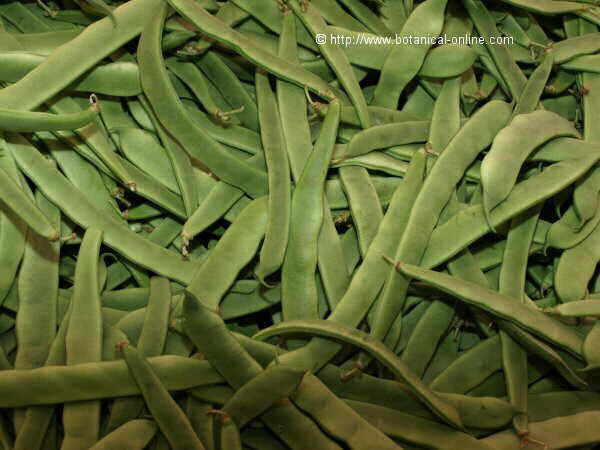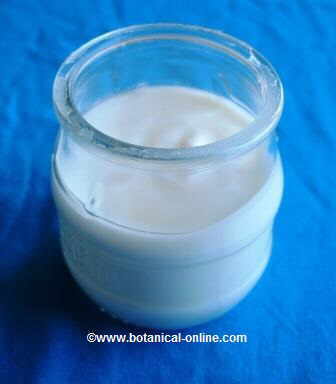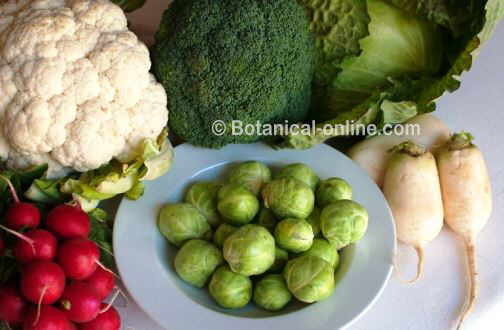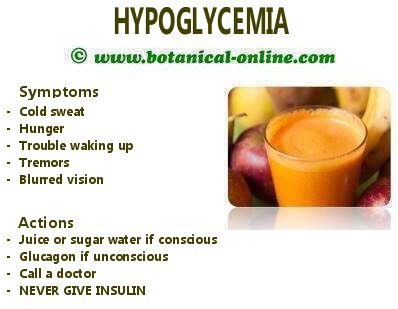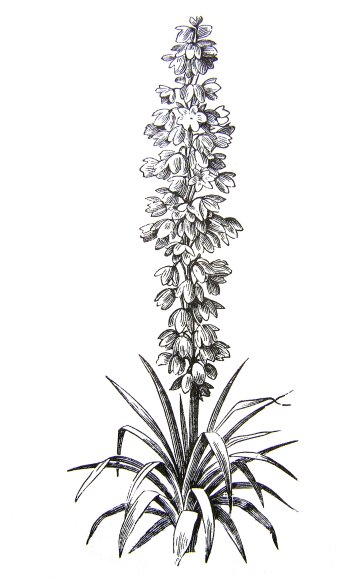Contents
Nutritional benefits of cucumbers
What are cucumbers?

Cucumber is the fruit of the cucumber (Cucumis spp.) It is a vegetable.
Cucumbers have a similar aspect to courgettes, but with little bumps on the outside of their skin.
These vegetables are usually put in pickling when small, but not exclusively. The big ones are usually eaten in salads.
They are dark green on the outside and a clear pale green inside.
They have a very intense and bitter taste.
What are the main nutrients of cucumbers? Cucumbers composition
As an energy source, 100 grams of cucumbers provide 13 kilocalories.
Their proportion of nutrients is divided into:
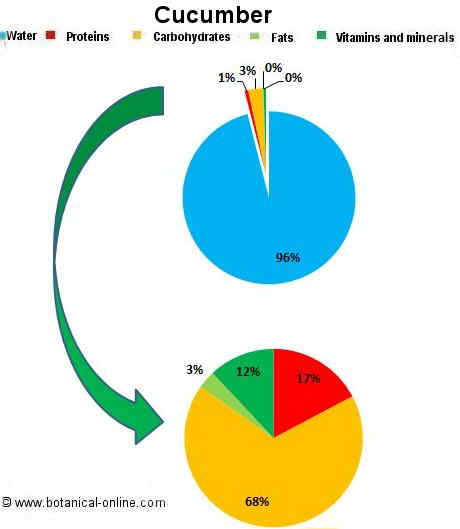
- More than 96% is water.
- A 0.13% fat.
- About 0.7% of proteins.
- Nearly 2.7% of carbohydrates.
- A 0.8% fiber.
Vitamins and minerals in cucumbers
Cucumbers are rich in potassium. They also contains small amounts of magnesium, phosphorus, calcium and iron.
They contain a lot of vitamin A, vitamin C and small amounts of other B vitamins and vitamin E.
Nutritional characteristics of cucumbers
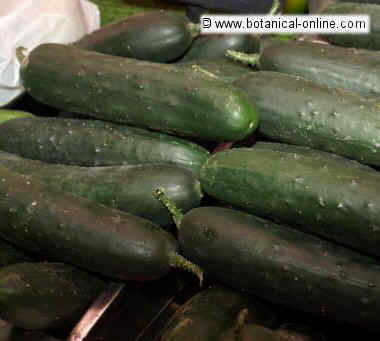
- Cucumber has a very high water content.
- It gives us very little energy in the form of calories.
- It contains little fat, but of a high quality and with many health benefits.
- It has a low protein content.
- It is very low in carbohydrates, especially starch.
- It has a very low in fiber.
- It helps to remove toxins from our body, because it contains potassium.
- Because of its content in B vitamins, particularly vitamin B3, vitamin B5 and vitamin B9, it helps us get energy from fat, protein and carbohydrate intake to properly grow and maintain our defenses in good condition.
- It protects the skin and helps keep it healthy, because of vitamin A.
- It protects us from colds and helps heal wounds, because it contains vitamin C.
- It protects us from the toxins and aging, because of vitamin A, vitamin C and vitamin E.
![]() More information on cucumbers
More information on cucumbers

